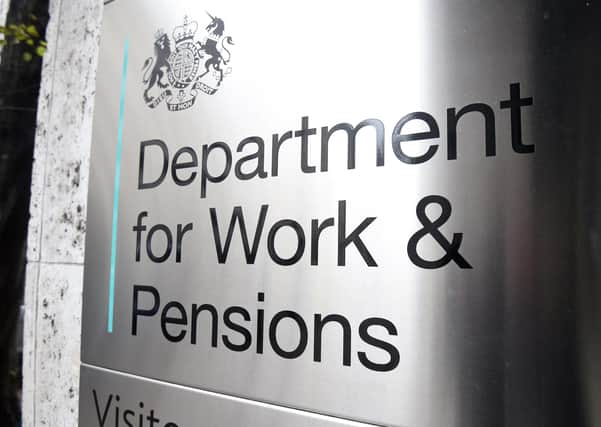East Renfrewshire sees record rise in national insurance registrations for non-EU nationals


It comes as the Office for National Statistics reported net migration to the UK from non-EU countries reached its highest level in 2019.
But as the Covid-19 crisis hits sectors reliant on foreign workers, Oxford University’s Migration Observatory says the pandemic could completely reshape the immigration system.
Advertisement
Hide AdAdvertisement
Hide AdDepartment for Work and Pensions statistics show 78 adults from non-EU countries registered for NI numbers in East Renfrewshire in the year to March – the most since comparable local records began in 2014.
NI numbers are required by foreign nationals if they want to work or claim benefits in the UK.
There was a similar pattern across the UK, where NI allocations to non-EU nationals increased to 326,400 – the most since 2011.
Rob McNeil, deputy director of the Migration Observatory, said the figures showed the “last days of normality” before the virus struck.
Advertisement
Hide AdAdvertisement
Hide Ad“Looking forward, it’s too early to quantify how the pandemic will affect future migration to the UK, although so far it’s clear the consequences already reach right across the immigration system, limiting workers’ ability to travel to take up work and employers’ difficulty bringing seasonal workers to British fields,” he said.
“Even once we emerge from the immediate health crisis, economic and social disruption in the migration system is likely to continue. It is hard to know if UK employers will still want to recruit workers from overseas.”
He added that migration flows to and from the UK may “effectively have to start from scratch” once the crisis is over.
A recent ONS report showed an estimated 282,000 more non-EU citizens moved to the UK than left last year – the most since records began in 1975.
Advertisement
Hide AdAdvertisement
Hide AdIt said that, since 2016, this has been mainly fuelled by more foreigners coming to study in the country.
Meanwhile, EU net migration has fallen since 2016, although more EU citizens are still arriving than leaving overall.
In East Renfrewshire last year, the most NI numbers were given to people from South Asia – 36 came from there.
This was followed by 29 from the EU15 group of pre-2004 member nations, which includes Italy and Spain, and 24 from Romania and Bulgaria, which joined the EU in 2007.
Advertisement
Hide AdAdvertisement
Hide AdRegions from which fewer than five people were allocated numbers were not included in the data.
The DWP says the figures should not be used to indicate immigration levels, as foreign nationals could have been in the country for some time before applying.
A government spokesman said its new points-based immigration system – the legislation for which is passing through Parliament – will “attract the talent we need to drive our economy forward”.
He added: “We will retain the ability to attract the brightest and best from across the globe but also encourage employers to train up homegrown talent.”
Comment Guidelines
National World encourages reader discussion on our stories. User feedback, insights and back-and-forth exchanges add a rich layer of context to reporting. Please review our Community Guidelines before commenting.